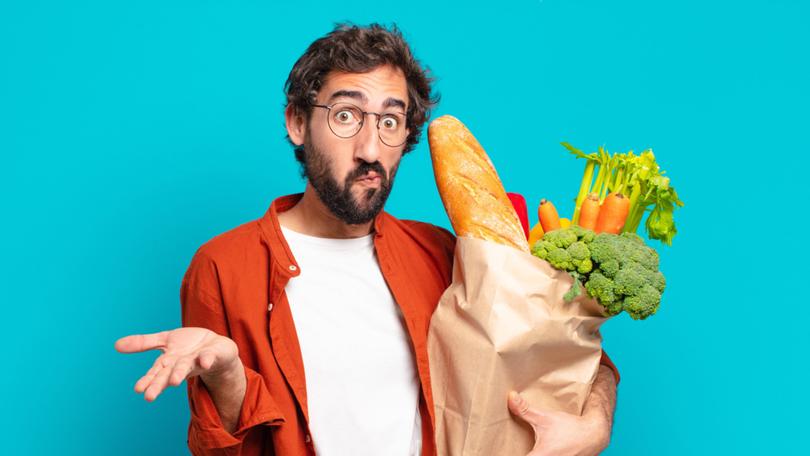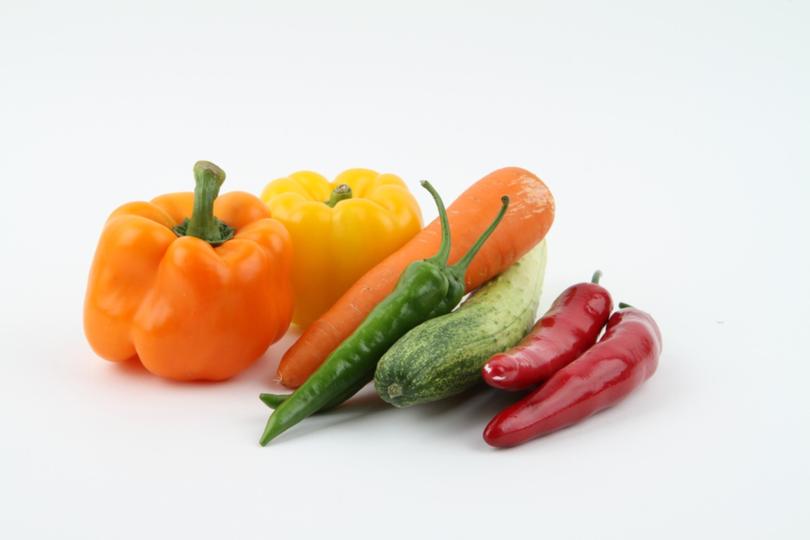SARAH DI LORENZO: Everything you need to know about making the switch to vegan or vegetarian
SARAH DI LORENZO: More Australians are now opting for vegan or vegetarian diets. But not doing the vegan or vegetarian diet correctly has serious implications for one's health. Here’s how to make the switch.

Around 2.5 million Australians according to recent research are opting for a plant-based diet and around 3 per cent are vegan.
There are different degrees of vegetarianism.
The main types are Lacto-ovo-vegetarians who are people who do not eat any meat and seafood but will include dairy and eggs.
Sign up to The Nightly's newsletters.
Get the first look at the digital newspaper, curated daily stories and breaking headlines delivered to your inbox.
By continuing you agree to our Terms and Privacy Policy.Then there is the Lacto-vegetarian who is someone who doesn’t eat meat, seafood and eggs but will eat dairy.
The ovo-vegetarian is someone who does not eat meat, dairy and seafood but will include eggs and then the vega is someone who avoids all animal foods even honey from bees.
The other categories are Pescetarians, people who do not eat meat but will eat dairy, eggs and seafood and the flexitarian someone who mainly has a plant-based diet but occasionally will eat small portions of meat and seafood, often referred to as a semi-vegetarian.
There are many different reasons why people choose to eat vegan or vegetarian.
These include ethics where a plant based diet opposes harming and exploiting animals as well as environmental where a plant based diet is considered more sustainable with less greenhouse emissions making them less harmful to the environment.
People feel there are a lot of health benefits as plant based diet is full of fruit, vegetables, seeds, nuts, legumes and whole grains all linked to a lower risk of cardiovascular disease and type 2 diabetes plus a reduced risk of cancer and when it comes to our gut, all the plants based foods are loaded with fibre having a positive impact on our gut microbiome and supporting digestion.
As a clinician I see many people who choose to go vegan or vegetarian without doing the proper research to make sure you are getting all of your nutrients and not ending up malnourished.
Sadly many people who don’t learn how to do the diet properly just end up eating a lot of carbohydrates like bread and rice plus way too much avocado or peanut butter.
Not doing the vegan or vegetarian diet correctly has serious implications for one’s health.
They include malnutrition and for vegans specifically a lack of Vitamin B12 that is crucial for nerve function and red blood cell production.
When people are B12 deficient symptoms include neurological issues, fatigue and feeling weak. While the vegan diet may lower the risk of type 2 diabetes and heart disease it increases the risk of impairment of immunity, skeletal and mental health.
The best way to go vegan or vegetarian so you can make sure you maintain good health and nutrition is to be balanced and healthy. You need to carefully plan the diet proactively including protein, iron, zinc, iodine, calcium, vitamin B12 and Vitamin D.
These are nutrients I see many vegans and vegetarians miss out on. For a vegan you will need to supplement with vitamin B12.

When looking at protein we need for growth and repair, plant based sources are legumes (beans, peas and lentils), nuts, seeds, tempeh, tofu, whole grains including oat and barley.
For iron that we need for the transport of oxygen around the body, sources include whole grains, dried fruits, leafy green vegetables, tofu, legumes and fortified products like bread and some cereals.
When it comes to making sure you have enough zinc that we need for our immune system sources include nuts, tofu, miso, legumes and whole grain foods.
We need to be having around one gram of protein per kilogram of body weight so for perspective 200 grams of tofu is 16 grams of protein whereas 1 cup of chickpeas or beans is around 40 grams and a cupped handful of tree nuts is around 4 grams.
To compare to animal protein, just 100 grams of chicken will give you 31 grams of protein, 100 grams of red meat around 27 grams of protein, 100 grams of fish around 24 grams of protein, 1 egg 7 grams of protein and when it comes to dairy ½ cup of yoghurt is 12 grams of protein.
We need calcium for our bone health, nerve and muscle.
Sources include dairy products, plant based milks and cereals that are fortified, tahini, sesame seeds, tofu, leafy green vegetables, nuts and legumes.
Iodine is incredibly important for the health and function of our thyroid, sources include dairy products, eggs, seaweed, some plant based milk and iodised salt.
For Vitamin B12 for healthy nerves, healthy brain and red blood cell production sources include dairy, eggs, some beverages and some vegetarian products but you will need to check labels.
Vitamin D which we can get from exposure to the sun, we need for bones, muscles, energy, mood, mental health and overall health you can also source from eggs, mushrooms, fortified products, beef and fish.
My best tip is to plan your menu for the week ahead, make sure you are including the foods above and protein is essential with each meal.
The key to success is knowledge and food preparation to be sure you are getting a healthy and nutritionally balanced diet.

